Nutritious meals can help protect your eyes for a lifetime. But preparing those meals can be dangerous. Avoid common eye hazards and stay safe in the kitchen with these tips.
Remember: Prevention is the best strategy. Eye protection can prevent most common eye injuries.
But if you do injure yourself, tell your ophthalmologist right away. Head straight to the emergency room if you experience prolonged pain, redness, blurred vision, tearing or a sensation that something is in your eye.
Hot grease can splatter and burn your eye
Hot cooking oil and grease can easily splash onto the eye and burn your cornea. This fairly common injury can be avoided by wearing glasses or, at the very least, using a grease shield or lid on the pan.
If hot grease splashes in your eye, immediately flush it with plenty of water. This will remove the grease and any particles. Don't use anti-redness drops to rinse your eye.
Artificial tears may soothe your eyes after a small grease splash but see your eye doctor as soon as possible if there is obvious injury, excessive pain, continuing symptoms or you're worried about your eye. You may be more susceptible to eye infections or other eye injuries while your eye is healing.
Watch out for bubbling sauces and splashing liquids
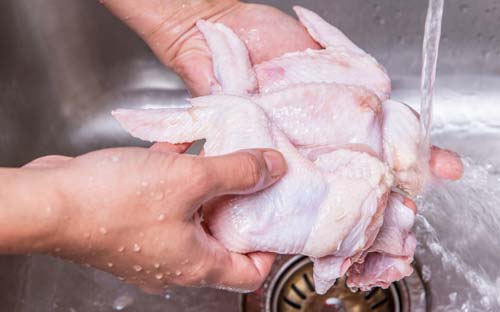
Any liquid that splashes in your eye can be uncomfortable. But food liquids may be especially dangerous. Fluids from food are often acidic and can cause your eyes to tear up and sting. Some foods, like raw chicken liquid, contain bacteria that could cause an eye infection. Simmering sauces can splash out of the pot and burn or blister your eye.
If this happens, flush your eye with plenty of water. See an eye doctor right away if you see any damage to your eye or if any of your symptoms continue.
Spicy residues can stick to your fingers and end up in your eye
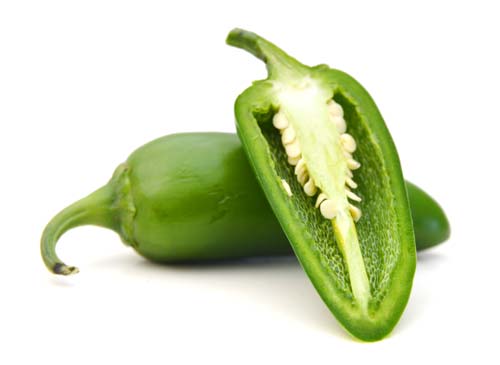
When you chop jalapeño peppers and use other spicy ingredients, your fingers retain oily residues that can end up in your eyes. Wash your hands thoroughly after preparing food. Or better yet, wear gloves while chopping vegetables and working with spices.
If pepper or spice oils end up in your eye, flush with plenty of water and then wash your eyelids and the area around your eye with baby shampoo. Never put any soap directly in your eye.
If onions make your eyes water, try these tips.
Cleaning chemicals can cause blinding eye injuries
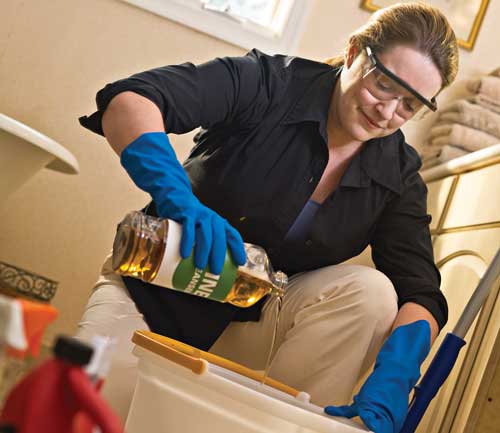
Cleaning products are among the top eye hazards in the kitchen. You should always wear eye protection when working with cleaning chemicals. Bleach, oven cleaners and other cleaning chemicals can cause serious, blinding eye injuries. If you get any cleaning products in your eyes, immediately flush with plenty of water and seek medical attention. The longer the exposure, the worse the damage can be.
Stay safe while using knives, scissors and other sharps
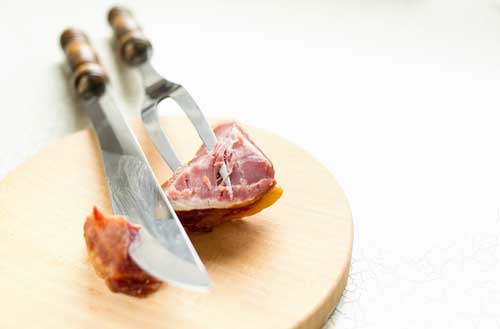
Sharp objects are the third-most-common cause of eye injuries in kids. Be especially careful with knives, forks, scissors and sharp objects when teaching young children to cook.
Don't slip! Keep floors clean and cabinet doors closed
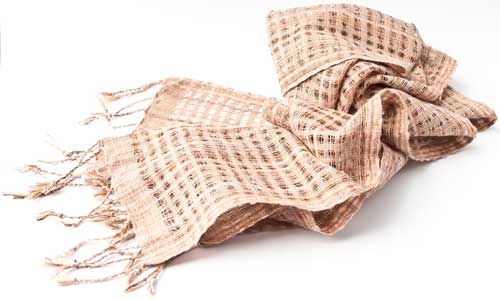
Loose rugs, open cabinets and liquid spills on the floor could be more of a hazard to your eyes than you realize. Falls are a top cause of eye injury in the United States. People 60 years old and older are especially prone to eye injuries from falls. Before you start cooking, make sure your kitchen is as safe for grandma as it is for the grandkids.
Keep foods out of your eyes
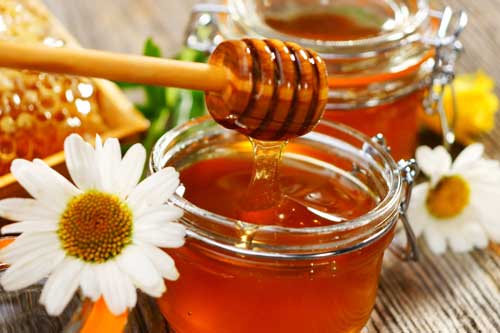
Don't fall for dangerous remedies or urban myths. Honey will not change your eye color and tea will not cure pink eye. Don't put anything in your eye that hasn't been designed for eye use. If you use sliced cucumber or other foods on the skin around your eyes, be careful not to let fluid leak into your eye.
Raw steak is not a safe or effective treatment for black eyes
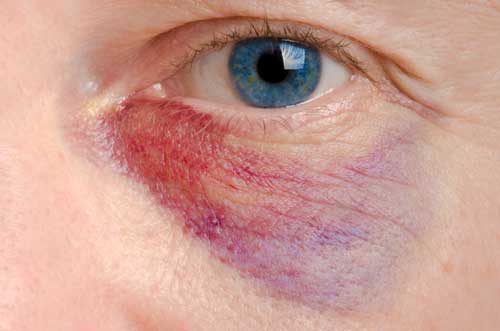
In cartoons and old movies, people often put a raw steak on a black eye. This is not safe. The bacteria on raw meat can cause a serious eye infection. Other packaged frozen foods, like bagged frozen vegetables, could be contaminated by bacteria in your freezer or kitchen. It's safer to use an ice pack or ice cubes wrapped in a clean towel. And call your doctor if you develop any serious symptoms after getting a black eye.